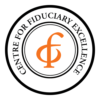Overview of Score My Funds
About Certified Financial Group

CFG’s roots date back to its start in Central Florida in 1976, and the professionals of CFG have delivered financial planning services to countless families across the country. We are one of the oldest and largest independent financial planning firms in the area.
Our Certified Financial Planner™ professionals have more than 300 years of combined experience. Each is trained in all areas of financial planning to include investment planning, Social Security planning, retirement planning, estate planning, and 401(k) services. Their knowledge and experience help to ensure clients receive a thorough, workable personal financial plan.
The value you gain from a Certified Financial Planner™ professional depends not only on sound investing, but on the plan you jointly design and execute behind those investments to achieve your financial goals…a plan that keeps working for you in all market and economic conditions.
As an independent firm not owned or controlled by a third party, we do not deal with “in house” or proprietary products. This structure gives our planners total freedom to provide financial solutions from a broad array of sources that work best for our clients.
Financial Planning and Asset Management is offered through Certified Advisory Corp. In this capacity, our Certified Financial Planner™ professionals strive to recommend investment solutions based purely on their merit. Because advisory clients pay fees that are based on assets under management, we do not rely on commissions or incentive-based products.
As a third party administrator and 401(k) recordkeeper, our Certified Benefits Corp division also works with employers to design, administer and communicate a variety of employee benefit programs. See our 401(k) Services for further details.
About Fi360

The Foundation for Fiduciary Studies (Foundation) is a nonprofit organization that was established to develop and advance practice standards of care (practices) for investment fiduciaries, which includes trustees and investment committee members, as well as brokers, bankers, and investment advisors. It is independent of any ties to the investment community and therefore, positioned to be a crucible for advancing the practice standards of care.
There are an estimated five million people who have the legal responsibility for managing someone else’s money, yet there is a surprising lack of detailed information that defines the investment management process they should follow. Legislation, case law and regulatory opinion letters provide the skeleton – the role of the Foundation is to put muscle, skin and hair on that skeleton and to help bring the body to life. For example, fiduciary legislation clearly requires that a due diligence process be followed in selecting an investment option, yet the industry has not defined what constitutes a minimum due diligence process.
The Foundation operates in association with the Center for Fiduciary Studies, which is located at the University of Pittsburgh Katz Graduate School of Business, Center for Executive Education, ranked among the top 15 executive education programs in the nation.
The Center of Fiduciary Studies is the first research and training center in the country focused solely on the subject of investment fiduciary responsibility and provides training programs that support the only professional designations based on investment fiduciary standards of care: AIF® (Accredited Investment Fiduciary ™) and AIFA® (Accredited Investment Fiduciary Auditor ™).
The Foundation received its initial funding from another foundation, which wishes to remain anonymous. The donor recognized the need for the industry to develop a “report card” that could be used to measure the effectiveness of the decision making process of an investment fiduciary.
About CEFEX Certification

First, a little background. There is a dichotomy in the investment industry and the general public is just now becoming aware of it. People in our business are broken down into two distinct categories, brokers and fiduciaries. Unfortunately, folks in the investment business can and do use a variety of names to describe themselves, e.g., planners, investment advisers, wealth managers, investment consultant, etc., etc. So it’s difficult to tell which camp one is in.
But here’s the difference. Brokers work for the firm. Fiduciaries work for you. Brokers (despite what they call themselves) are held to a suitability standard when they’re dealing with the public which means that their recommendations have to be suitable, which means “do no harm.” In other words, a broker is permitted to sell you something as long as it will not harm you. It may not be the best solution or product, but as long as it does no harm, the standard has been met.
A fiduciary, on the other hand, is held to a higher standard of care. A fiduciary must be able to demonstrate that the recommendation made, is not only suitable, but is unquestionably the best choice given the relevant facts and circumstances. A huge difference.